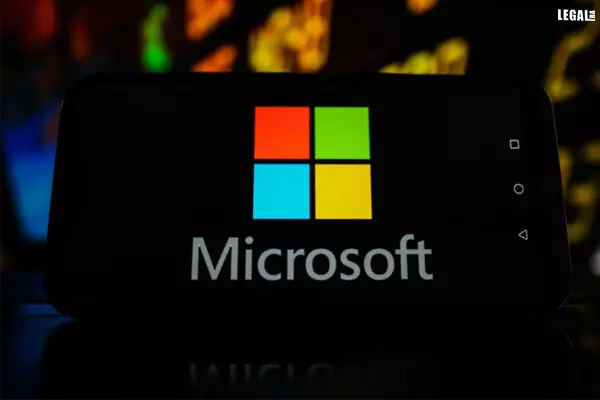- Home
- News
- Articles+
- Aerospace
- Artificial Intelligence
- Agriculture
- Alternate Dispute Resolution
- Arbitration & Mediation
- Banking and Finance
- Bankruptcy
- Book Review
- Bribery & Corruption
- Commercial Litigation
- Competition Law
- Conference Reports
- Consumer Products
- Contract
- Corporate Governance
- Corporate Law
- Covid-19
- Cryptocurrency
- Cybersecurity
- Data Protection
- Defence
- Digital Economy
- E-commerce
- Employment Law
- Energy and Natural Resources
- Entertainment and Sports Law
- Environmental Law
- Environmental, Social, and Governance
- Foreign Direct Investment
- Food and Beverage
- Gaming
- Health Care
- IBC Diaries
- In Focus
- Inclusion & Diversity
- Insurance Law
- Intellectual Property
- International Law
- IP & Tech Era
- Know the Law
- Labour Laws
- Law & Policy and Regulation
- Litigation
- Litigation Funding
- Manufacturing
- Mergers & Acquisitions
- NFTs
- Privacy
- Private Equity
- Project Finance
- Real Estate
- Risk and Compliance
- Student Corner
- Take On Board
- Tax
- Technology Media and Telecom
- Tributes
- Viewpoint
- Zoom In
- Law Firms
- In-House
- Rankings
- E-Magazine
- Legal Era TV
- Events
- Middle East
- Africa
- News
- Articles
- Aerospace
- Artificial Intelligence
- Agriculture
- Alternate Dispute Resolution
- Arbitration & Mediation
- Banking and Finance
- Bankruptcy
- Book Review
- Bribery & Corruption
- Commercial Litigation
- Competition Law
- Conference Reports
- Consumer Products
- Contract
- Corporate Governance
- Corporate Law
- Covid-19
- Cryptocurrency
- Cybersecurity
- Data Protection
- Defence
- Digital Economy
- E-commerce
- Employment Law
- Energy and Natural Resources
- Entertainment and Sports Law
- Environmental Law
- Environmental, Social, and Governance
- Foreign Direct Investment
- Food and Beverage
- Gaming
- Health Care
- IBC Diaries
- In Focus
- Inclusion & Diversity
- Insurance Law
- Intellectual Property
- International Law
- IP & Tech Era
- Know the Law
- Labour Laws
- Law & Policy and Regulation
- Litigation
- Litigation Funding
- Manufacturing
- Mergers & Acquisitions
- NFTs
- Privacy
- Private Equity
- Project Finance
- Real Estate
- Risk and Compliance
- Student Corner
- Take On Board
- Tax
- Technology Media and Telecom
- Tributes
- Viewpoint
- Zoom In
- Law Firms
- In-House
- Rankings
- E-Magazine
- Legal Era TV
- Events
- Middle East
- Africa
Delhi High Court rules on licensing of software products

Delhi High Court rules on licensing of software products
It cited an earlier Supreme Court ruling in favor of the assessee
The Delhi High Court has held that the licensing of software products of Microsoft was not taxable in India, as it did not amount to 'royalty' as per the Indo-US Double Tax Avoidance Agreement (DTAA) and also under the provisions of the Income Tax Act, 1961.
The revenue department had approached the court against the decision of the Income Tax Appellate Tribunal ITAT). It contended that the distribution model of the respondent-assessee involved making multiple copies of the software, which clearly indicated the transfer of copyright.
The division bench comprising Justice Manmohan and Justice Sudhir Kumar Jain found that the issue raised in the appeals was no longer res integra. It cited an earlier Supreme Court decision wherein it was held that the amounts paid by the resident Indian end-user/distributor to a non-resident computer software manufacturer/supplier were not the payment of royalty for the use of copyright.
Relying on the apex court's verdict, the high court ruled that the payment received by EYGSL (UK) for providing access to computer software to EYGBS India, the member firm of EY Network, was not liable to be taxed in India.
It said, "Since the issue of the law raised in the earlier appeals had been conclusively decided in favor of the assessee by the Supreme Court, no substantial question arises in the present appeals. The appellant had admitted before the ITAT that the dispute had been decided in favor of the assessee. The appeals are, therefore, dismissed."



